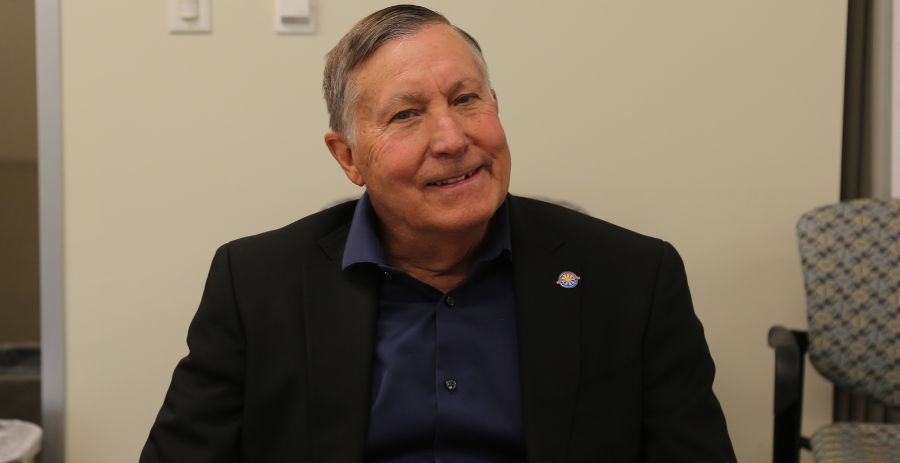ASU
Tom Buschatzke: The Man Behind Arizona’s Steady Water Supply

Tom Buschatzke has been at the helm of Arizona’s water management for nearly a decade, serving as the director of the Department of Water Resources. His extensive career, which began as an intern in the same department, is marked by a deep and enduring commitment to water policy in the state.
Reflecting on his journey, Buschatzke noted the importance of water management in both his professional development and personal values. His initial interest sprouted during his undergraduate studies in geology. Exposure to numerous rivers and streams in upstate New York nurtured his fascination with water and propelled him toward this essential field. A missed job opportunity with the U.S. Geological Survey led him to Arizona State University, where he discovered an internship that changed his career trajectory.
Being the director of an agency where he once interned offers unique insights. Buschatzke emphasized his understanding of the challenges faced at all levels of the organization. He actively engages with his staff, valuing their input, an approach he wished he had during his early career. Today’s workplace dynamics give greater value to less experienced voices, a trend he views as a positive change.
Buschatzke remains passionate about his role in water policy, stating that complexity keeps him motivated. Each day presents new challenges and learning opportunities. Interactions with federal agencies like the EPA and U.S. Fish and Wildlife Service enrich his understanding of broader environmental issues. His commitment is fueled by a personal connection—his grandchildren—and a desire for a sustainable future for Arizona.
When discussing water reliability, Buschatzke expressed concern that many residents don’t grasp how local community dynamics affect their water supply. He cited the Rio Verde Foothills issue as a stark reminder of this reality. Misunderstandings about water rights and infrastructure can lead to significant vulnerabilities. He believes public awareness about these complexities is crucial for sustainable management.
He encourages those seeking more knowledge about their water services to engage with local providers and explore available resources. In an age overwhelmed by information, he acknowledged the challenge of boiling down complex issues into digestible sound bites.
Acknowledging the stressors of his role, Buschatzke finds balance through familial support and personal interests. A supportive network—his family, friends, and hobbies like golf and attending ASU football games—plays a significant role in managing work-related pressures.
His leisure time reflects his fascination with history, evident in his choice of documentaries and film channels. Even as he approaches the ten-year mark in his directorship, he expresses no immediate plans for retirement, instead envisioning a departure that allows for a clean break from the field he has dedicated decades to.
On his legacy, Buschatzke hopes to leave behind a framework for addressing water challenges, ensuring that future leaders have a robust foundation to build upon. He strongly advocates for internships, recognizing their role in shaping the careers of future water experts.
Finally, Buschatzke emphasized the department’s commitment to making decisions that benefit all of Arizona, even when those choices may create friction among specific groups. His leadership seeks to include a diverse range of voices, particularly from tribes, in addressing the multifaceted challenges of water management.


















